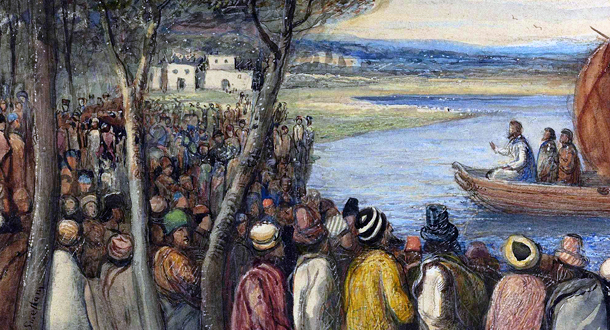
Scripture:
Isaiah 45:1, 4-6
1 Thessalonians 1:1-5b
Matthew 22:15-21
Reflection:
…the Pharisees took counsel how to entangle him in his talk…they went along with the Herodians…
Wow! This line could be taken directly out of today’s news…they plotted against him, they wanted to trip him up, they wanted him to fail so they could win! Do you ever wonder why it is that human nature feels the need to make everything so transactional? Why is it that humans need tear others down in order to feel good about themselves? Why is it so easy to get ‘sucked’ in to negativity, mistrust, judgment and cynicism? Pharisees and Herodians were very strange bedfellows – they hated each other! Maybe that is the message of today’s gospel, be careful who you hate – hate never has a good outcome!
Jesus is always about love. Oh, they wanted to trip him up, they would do anything to ‘catch’ him – even join their hate together… Jesus is able to see beyond the façade, see into the heart – and he refuses to respond in kind. But he does challenge – from a place of truth – give to Caesar what is Caesar’s and give to God what is God’s.
We all belong to God’s Kingdom – in fact, we are first heirs to God and God’s kingdom, defines for us who we are and whose we are. We have a privileged citizenship and we are called to extend that privilege to all in God’s kingdom. We, like Jesus need to be voices of love and truth to all facets of our lives. We can’t be about plotting against, we must be about building the kingdom, finding ways to bridge rather than divide, search for common ground that makes room for growth, vision and possibility. Can we, like Jesus learn to make room for the light of the Holy Spirit – and trust where that light shines?
Faith Offman is the Associate Director of Ministry at St. Paul of the Cross Passionist Retreat and Conference Center in Detroit, Michigan.







